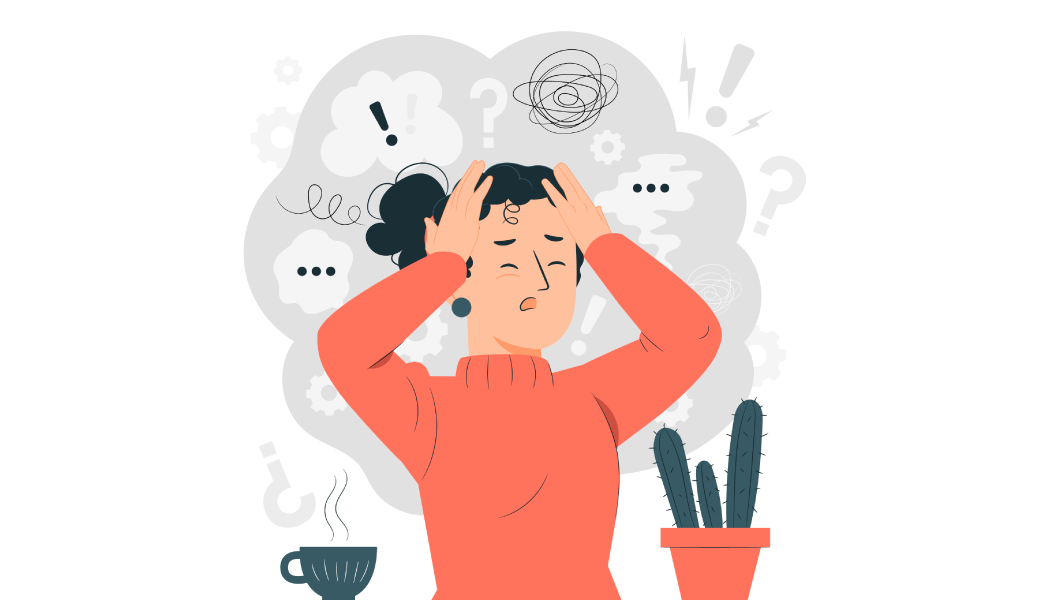Anxiety disorders affect millions of people worldwide, causing significant distress and interference with daily life. Fortunately, there are treatment options available to help individuals manage their anxiety effectively. One such option is Alprazolam, commonly known by its brand name Xanax. In this article, we will explore how Alprazolam can be beneficial in managing anxiety disorders.
Understanding Anxiety Disorders
Anxiety disorders encompass a range of conditions characterized by excessive and persistent worry, fear, or apprehension. Common types of anxiety disorders include generalized anxiety disorder (GAD), panic disorder, social anxiety disorder (SAD), and specific phobias. The symptoms of anxiety disorders may vary but often include restlessness, irritability, difficulty concentrating, and physical manifestations such as rapid heartbeat and sweating.
Alprazolam (Xanax) and its Mechanism of Action
Alprazolam belongs to a class of medications called benzodiazepines. It acts on the central nervous system, specifically enhancing the effects of a neurotransmitter called gamma-aminobutyric acid (GABA). GABA is responsible for reducing the activity of nerve cells in the brain, leading to a calming and sedating effect. By enhancing GABA activity, Alprazolam helps to reduce anxiety and promote relaxation.
Benefits of Alprazolam for Anxiety Management
Alprazolam has been found to provide several benefits for individuals with anxiety disorders:
Reduction of Anxiety Symptoms
Alprazolam effectively reduces the symptoms of anxiety, such as excessive worry, nervousness, and tension. It helps individuals experience a sense of calm and relaxation, enabling them to better cope with their anxiety.
Relief from Panic Attacks
For individuals with panic disorder, Alprazolam can be particularly helpful in managing and reducing the frequency of panic attacks. It works rapidly to alleviate the intense fear and physical symptoms associated with panic attacks, providing a sense of control and stability.
Improved Functioning in Social Situations
Social anxiety disorder, also known as social phobia, can significantly impact an individual’s ability to engage in social interactions. Alprazolam can help reduce anxiety in social situations, allowing individuals to feel more comfortable and participate more fully.
Dosage Guidelines for Alprazolam
The dosage of Alprazolam should be determined by a healthcare professional based on the individual’s specific needs and medical history. It is essential to follow the prescribed dosage instructions and not exceed the recommended dose. The dosage may be adjusted over time to achieve the desired therapeutic effect.
Starting Dosage
Typically, the initial dosage of Alprazolam is low and gradually increased as needed. This approach helps to minimize the risk of side effects and allows the body to adjust to the medication.
Titration and Maintenance
Once an effective dosage is established, it is important to maintain it consistently. Abruptly stopping Alprazolam can lead to withdrawal symptoms, and dosage adjustments should always be done under medical supervision.
Potential Side Effects and Precautions
As with any medication, Alprazolam can cause side effects. Common side effects may include drowsiness, dizziness, and coordination difficulties. However, these side effects are typically temporary and diminish with time. It is important to be aware of the potential risks and benefits of Alprazolam and discuss them with a healthcare professional.
Safety Considerations
Alprazolam may not be suitable for everyone. It is contraindicated in individuals with known hypersensitivity to benzodiazepines or acute narrow-angle glaucoma. Pregnant and breastfeeding women should avoid taking Alprazolam due to potential risks to the developing fetus or infant. It is crucial to disclose all medications and supplements being taken to prevent potential drug interactions.
Importance of Professional Guidance and Monitoring
The use of Alprazolam for anxiety disorders should always be guided by a healthcare professional. Regular monitoring is essential to evaluate the medication’s effectiveness, adjust the dosage if necessary, and assess any potential side effects. Healthcare providers can also provide support and guidance for implementing additional anxiety management strategies.
Exploring Other Anxiety Management Strategies
While Alprazolam can be effective for managing anxiety disorders, it is important to consider a comprehensive approach to treatment. Therapy and counseling, such as cognitive-behavioral therapy (CBT), can provide valuable tools and techniques to address underlying anxiety triggers and develop coping skills. Lifestyle modifications, such as regular exercise, stress reduction techniques, and healthy sleep habits, can also contribute to anxiety management. In some cases, alternative medications may be considered as well.
Conclusion
Alprazolam (Xanax) is a valuable medication for individuals struggling with anxiety disorders. Its mechanism of action and benefits in reducing anxiety symptoms, relieving panic attacks, and improving social functioning make it a useful tool in anxiety management. However, it is crucial to use Alprazolam under professional guidance, adhere to dosage guidelines, and consider complementary strategies for long-term anxiety management.
FAQs About Alprazolam (Xanax) for Anxiety Disorders
- Can Alprazolam be used as a long-term solution for anxiety management? Alprazolam is generally not recommended for long-term use due to the potential for dependence and tolerance. It is primarily prescribed for short-term relief of anxiety symptoms or during acute episodes. Long-term management of anxiety disorders often involves a combination of therapies, lifestyle modifications, and alternative treatments. It is essential to work closely with a healthcare professional to develop a comprehensive treatment plan.
- Are there any alternative medications to Alprazolam for anxiety treatment? Yes, there are alternative medications that can be used for the treatment of anxiety disorders. These may include selective serotonin reuptake inhibitors (SSRIs), serotonin-norepinephrine reuptake inhibitors (SNRIs), and buspirone. Each medication has its own benefits, side effects, and considerations. Your healthcare provider can determine which medication is most suitable for your specific needs.
- How long does it take for Alprazolam to start working? Alprazolam is a fast-acting medication, and its effects are typically felt within 30 minutes to an hour after taking it. However, individual responses may vary. It is important to follow the prescribed dosage and give the medication sufficient time to reach its full effectiveness.
- Is it safe to drive or operate machinery while taking Alprazolam? Alprazolam can cause drowsiness, dizziness, and impair coordination, which can affect your ability to drive or operate machinery safely. It is recommended to avoid these activities until you understand how Alprazolam affects you personally. Always follow your healthcare provider’s instructions and exercise caution when engaging in tasks that require alertness.
- Can Alprazolam be addictive? Yes, Alprazolam has the potential for dependence and addiction, especially with long-term use or misuse. It is classified as a Schedule IV controlled substance due to its potential for abuse. It is essential to take Alprazolam exactly as prescribed, avoid increasing the dosage without medical supervision, and follow the recommended tapering-off process when discontinuing the medication. If you have concerns about addiction or dependence, discuss them with your healthcare provider.
Are you tired of battling constant anxiety and the debilitating effects it has on your daily life? Look no further! Alprazolam Xanax is here to provide the relief you’ve been seeking.




